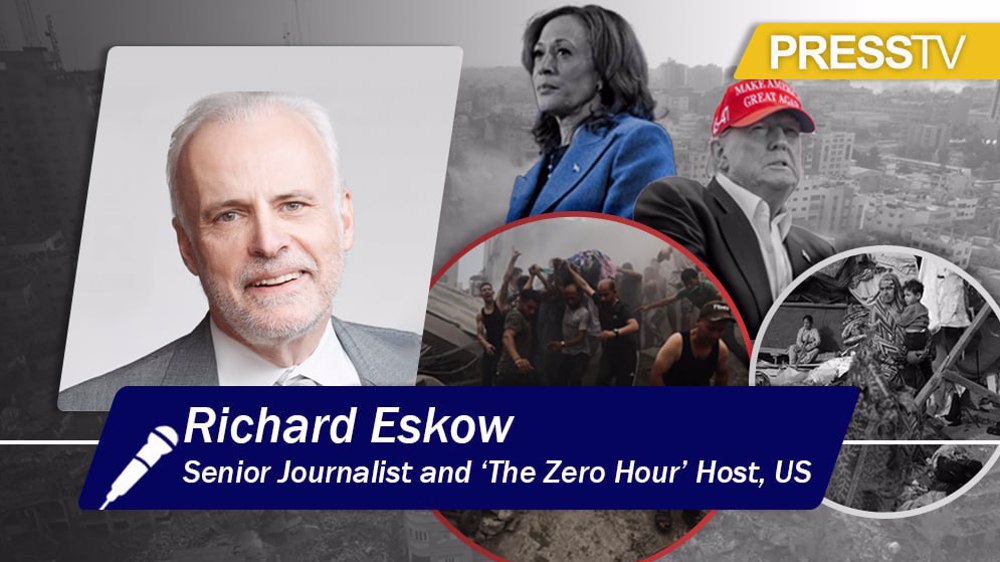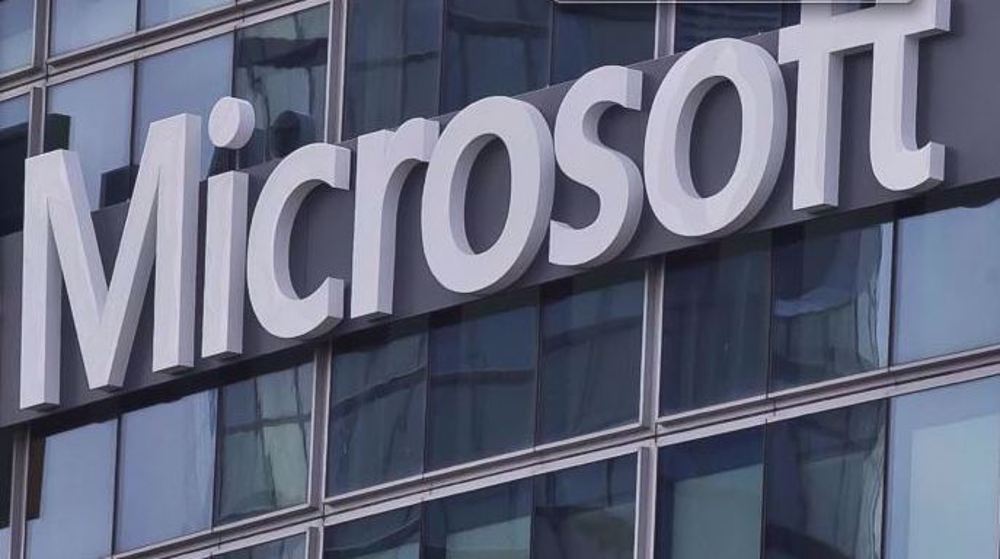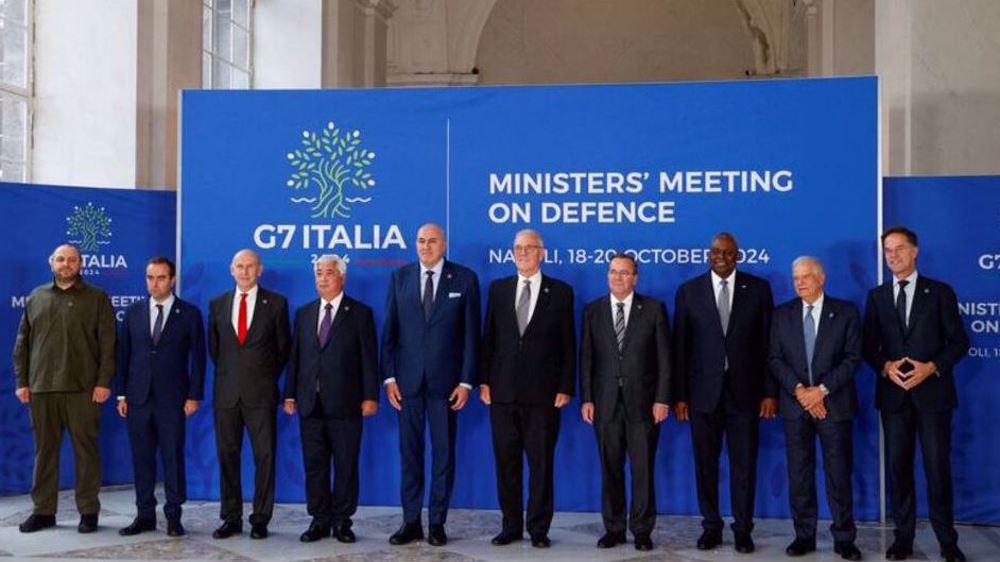Pompeo calls for NATO unity to confront Iran, Russia, China
US Secretary of State Mike Pompeo has called on NATO members to get united in the face of what he called emerging threats from Iran, Russia and China.
“We must continue to do so, especially in this new era of great power competition from Russia, from China, and the Islamic Republic of Iran,” he told a meeting of NATO's foreign ministers in Washington.
The ministers gathered to celebrate the 70th anniversary of the North Atlantic Treaty Organisation, but the meeting was marked by public rifts among the member states.
Pompeo said addressing the new challenges required enhanced military and security spending.
"We must adapt our alliance to confront emerging threats whether that's Russian aggression, uncontrolled migration, cyber attacks, threats to energy security, Chinese strategic competition, including technology and 5G, and many other issues," he said.
The ministers approved a new raft of measures in the Black Sea to counter Russia and boost Georgia and the Ukraine - two aspiring NATO members - with increased maritime cooperation, patrols and port visits.
Pompeo has also been seeking with limited success to persuade US allies not to choose Chinese telecom giant Huawei for their fifth-generation networks, claiming that the company poses risks to security and personal privacy.
US President Donald Trump has called on NATO countries to increase military spending to 4 percent of their gross domestic product and singled out Germany for not doing enough.
The gathering on Thursday was overshadowed by those rifts as well as a deepening dispute with Turkey over Ankara's planned purchase of Russian-built S-400 air defense missile systems.

Though Pompeo did not address the spat with Ankara in his speech, he reiterated Washington’s displeasure on the issue in a meeting with Turkish Foreign Minister Mevlut Cavusoglu a day earlier.
Cavusoglu, however, made it clear that the purchase of the missile system from Russia “is a done deal” and that Ankara does not have to choose between Russia and other countries.
"We are not choosing between Russia and any other allies… We don't see our relations with Russia as an alternative to our relations with others. And nobody, neither West nor Russia, should or can ask us to choose," he said.
The US has already suspended deliveries of equipment of F-35 jets to Ankara over the dispute. Cavusoglu said Washington has made a final offer for Patriot defense system sales to Turkey, but “we couldn't get it for 10 years."
Bolton campaigning against China at UN
US National Security Adviser John Bolton is busy campaigning against China’s influence in the United Nations and other international organizations, American news publication Foreign Policy magazine reported.
"The effort is one part of a broader bid by the Trump administration to try to stall China’s rise as a global power, breaking with decades of US diplomatic efforts to manage China’s inevitable emergence as a responsible global competitor," it wrote.
In recent months, the United States has moved beyond trade sanctions, pressing European governments to bar the Chinese telecom giant Huawei from building the region’s infrastructure for high-speed 5G internet access.
According to Foreign Policy, Bolton’s new push to contain China’s influence at the UN is ironic given the national security adviser’s efforts to sideline the international institution.
European allies have warned that the Trump administration's withdrawal from a range of international organizations and agreements have paved the way for China and other powers to fill the diplomatic vacuum.
The Europeans, however, are looking to avoid an outright confrontation with Beijing, while key European countries, including Greece and Italy, have decided to participate in China's Belt and Road Initiative.
The dispute reflects the emergence of an increasingly confrontational approach to China by the US since Bolton’s appointment to the White House’s top national security job last April.
The two powers are currently locked in a deepening trade dispute and a confrontation in the South China Sea which is mostly claimed by Beijing.
The US sends its bombers and warships to the sea in a show of force. China has warned that the US would have to pay a “price” if it continued to interfere in territorial disputes between Beijing and its neighbors over the South China Sea.
British protesters slam UK’s complicity in Gaza genocide on Balfour day
US surgeon haunted by Gaza children with ‘single gunshot wounds to head’
VIDEO | Iran's possible retaliation against Israel
VIDEO | Fatal Harvest: Escalating attacks on Palestinian farmers in the occupied West Bank
Hamas rejects temporary truce offer, calls for complete ceasefire in Gaza
Iran among top nuclear technology countries: AEOI chief
Democrats 'risk losing' election for backing Israeli war on Gaza, Lebanon: US journalist
Protesters remove busts of Israel's first president from Manchester Univ.















 This makes it easy to access the Press TV website
This makes it easy to access the Press TV website